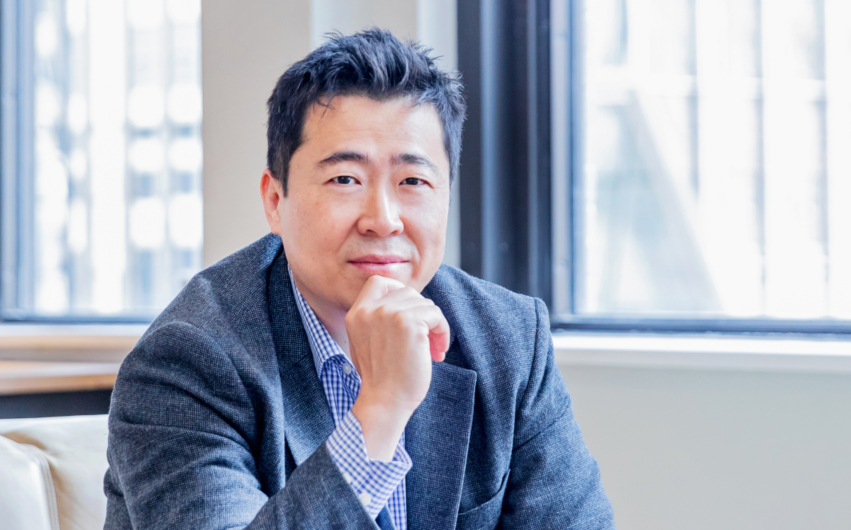
174 Power Global CEO and President, Henry Yun, Featured in Article on U.S. Global Leadership in Renewables
Manhattan, NY – Jan. 3. 2022 – From fossil fuels to clean energy, mankind’s great challenge toward carbon neutrality has begun. Major countries are taking big steps in the energy transition to save the planet from global warming caused by climate change. Carbon neutrality is also the scene of a fierce economic war to take the lead in the new economic ecosystem realized by clean energy. The state of New York proactively recruits households to use renewable energy by way of enrolling in community solar. Households can save 10% of the cost of conventional electricity. If community solar is introduced in Korea, there will be widespread adoption of community solar. Henry Yun is CEO and President of 174 Power Global, an American corporation of Hanwha Energy. 174 Power Global is a renewable energy development company that encompasses PV (solar power generation), ESS (energy storage systems), and green hydrogen production.
In particular, the 174’s performance has been successful. The company is engaged in commercial and industrial, utility scale and retail businesses. In the United States, it has extensive solar power development business rights with a pipeline close to 8 gigawatts and has signed power purchase agreements (PPAs) of more than 2 GW. In 2018, it was named the number one PV development company in the United States by Wood Mackenzie. This comes thanks to the early jump in recognition of the expandability of the U.S. solar market in 2013. Yun said, “The total solar power generation in the United States has increased from about five million kWh in 1984 to 133 billion kWh in 2020. Systems and power plants account for 2%.”
Yun cited U.S. policies and environment as the reason for the rapid expansion of the U.S. solar market. “At the government level, there is significant administrative support for the development of new and renewable energy,” he said. The investment tax credit, or ITC, is a system that provides a tax credit on investments related to renewable energy facilities and technologies such as solar, wind, and hydro power. The market has been revitalized as the price of renewable energy has dropped with this legislation.”
The U.S. home solar market is also highly developed compared to Korea. This is because the installation rate of solar power generation is high due to the strong sunlight, many low-rise single-family homes and high electricity consumption in the United States. In addition, institutional support such as net metering also played a major role in revitalizing the residential photovoltaic market. The net metering system is a system that allows the system owner to sell excess electricity produced by businesses or household’s renewable energy facilities to the utility. It was introduced to expand the supply of renewable energy and to support the adoption of distributed energy resources.
The development of distributed energy is also positive for the development of new and renewable energy in the United States. Distributed power is a small-scale power generation facility that can be distributed and placed near an area where electricity is consumed, unlike large-scale centralized power sources such as thermal, nuclear, coal and natural gas power generation facilities.
Yun said, “For distributed power to spread, there needs to be a bidirectional power platform, and barriers for licensed providers must be lowered so anyone can directly sell power to homeowners and commercial buildings. If institutional efforts are supported as much as the revision of the Electricity Rate Act, which allows energy to be sold directly to consumers, we will be able to more successfully develop and operate distributed power sources.”
Yun also mentioned the Build Back Better bill, a second infrastructure package bill proposed by U.S. President Joe Biden. “The bill proposed by the Biden administration includes the extension of the ITC until 2031 and the implementation of a system such as a solar production tax deduction. It opens up opportunities to accelerate,” he said.
174 Power Global plans to expand to the green hydrogen business based on the advantages of the U.S. renewable energy market. Yun said, “We are planning to develop green hydrogen facilities in major regions of the United States. I believe we can use our expertise in renewable energy to achieve our future goals.”
About 174 Power Global
174 Power Global is a leading solar and energy storage company that is wholly owned by the Hanwha Group, with offices in NYC and in California. With deep expertise across the full spectrum of the project development cycle, 174 Power Global works closely with utilities, landowners, local communities, financial investors, and other partners to build highly productive, utility scale and C&I solar power plants throughout North America. Since its formation in 2017, 174 Power Global has signed more than 2 gigawatts (GW) of power purchase agreements and has more than 8 GW of additional projects in the development pipeline.
174 Power Global’s name was inspired by the 174 petawatts (PW) of power the earth receives from the sun at any moment. For more information, visit 174PowerGlobal.com
Money Today Reporter, Choi Min-Kyung
This article was translated from Korean to English. Here is the original article: https://news.mt.co.kr/mtview.php?no=2021122417392680548
